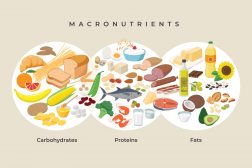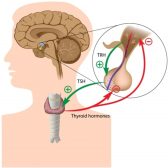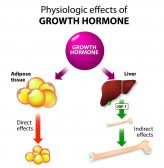Definition
noun, plural: steroids
Any of the group of fat-soluble organic compounds containing four rings arranged in a particular molecular configuration, produced either naturally (i.e. from the sterols lanosterol and cycloartenol) or synthetically
Supplement
A steroid refers to any of the group of natural and synthetic hormones or lipids containing a hydrogenated cyclopentanoperhydrophenanthrene ring system. Steroids occur naturally and have various physiological effects. Many of them occur as a cell membrane component. Others may serve as signaling molecule. Natural steroids are produced by the cell from the sterols, such as lanosterol and cycloartenol. Lanosterols are the source of steroids in animals and fungi. Cycloartenol are the source of steroids in plants. The core of a steroid is basically made up of 17 carbon atoms bonded in four rings. The rings A, B, and C are six-member cyclohexane rings and the ring D is a five-member cyclopentane ring. Hundreds of steroids occur naturally and they vary by the functional groups bound to the core.
In animals, the steroids include those found in vertebrates and insects. Steroids in vertebrates, including humans, are exemplified by cholesterol and steroid hormones. Steroid hormones include sex hormones (e.g. androgens, estrogens, and progesterones), corticosteroids (e.g. glucocorticoids and mineralocorticoids), and anabolic steroids. In insects, ecdysteroids and ecdysterones are steroids involved in molting.
Certain steroids are produced synthetically and are used in medicine. For example, prednisone, prednisolone, methylprednisolone and dexamethasone are used for the treatment of leukemia. They may also be used to suppress graft rejection and graft-versus-host disease after a bone marrow transplant. Nevertheless, taking these therapeutic steroids has side effects, e.g. increased risk of infection and moon face.
In plants, the steroids are exemplified by steroidal alkaloids, phytosterols, and brassinosteroids. In fungi, the steroids include the ergosterols, which are analogous to the cholesterol in the cell membrane of animals.
Word origin: ster(ol) + oid
See also:
- Cholesterol
- Sterols
- Equilenin
- Progesterone
- Moon face
- hormone
Related term(s):
Related form(s):
- steroidal (adjective, of, relating to, or pertaining to a steroid)





